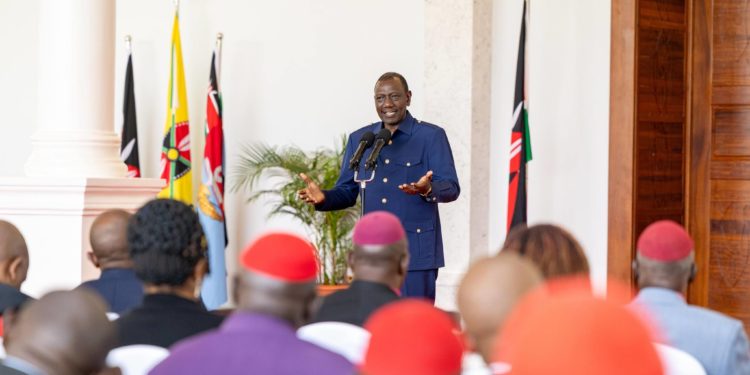President William Ruto announced that Kenya will need to borrow KES 1 trillion to sustain government operations following the rejection of the Finance Bill.
In a candid roundtable interview, President William Ruto detailed the fiscal implications of the recent decision to reject the Finance Bill revealing that the rejection will force the government to borrow KES 1 trillion to maintain essential services and operations.
“The rejection of the Finance Bill means we have gone back almost two years in our fiscal strategy,” President Ruto stated emphatically. “This year, we are going to borrow a trillion shillings to be able to run our government.”
The Finance Bill, initially intended to generate KES 340 billion in new revenue, was reduced to KES 200 billion following public outcry. Despite these adjustments, the bill faced significant opposition and was ultimately dropped. Ruto highlighted the critical nature of this bill, explaining that without it, Kenya will have to significantly increase its borrowing, exacerbating the nation’s debt burden .
President Ruto pointed out that the country currently allocates KES 1.1 trillion of its annual KES 2.3 trillion tax revenue to debt financing and another trillion to salaries. This leaves the government with no choice but to borrow funds to cover other essential expenditures such as county payments and education funding .
“Our debt stock increased five times from KES 1.8 trillion in 2013 to over KES 10 trillion in just ten years. We built roads, connected electricity, and did many things, but we did it on debt,” Ruto explained. “Today, all the money we borrowed is maturing, and we are spending KES 1.1 trillion each year just on interest payments” .
The President stressed the importance of honest public discourse about the country’s financial state. “We need to contextualize where we are. We are at a critical inflection point. This crisis will help us be candid and speak to each other properly” .
Despite the daunting fiscal challenges, President Ruto remained optimistic about Kenya’s ability to navigate this crisis. He emphasized that the rejection of the Finance Bill, while creating immediate financial strain, offers an opportunity for the nation to re-evaluate and strategize for a more sustainable economic future.


















